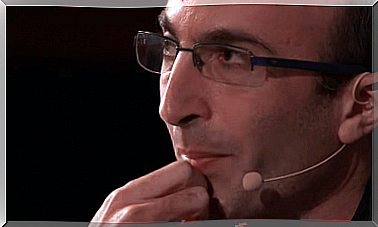9 Things Best Not To Say At The Start Of A Conversation

There are things that are better left unsaid at the beginning of a conversation if we don’t want to spoil that conversation right away. Taking into account a series of phrases and expressions will allow us to be good artisans of practical dialogues and, above all, enriching. As we all know, there are many who use an aggressive style that leaves us blocked with the first word.
We are not yet fully aware of how our reality can change when we become good communicators. For example, the person who is skilled at initiating and maintaining a conversation reinforces their self-confidence. Not only is the ability to reach agreements optimized, but so is self-esteem and self-vision.
Thus, if it is important to know how to listen, to convey a message clearly and confidently and to use assertiveness, it is equally crucial to know how to open a dialogue. Starting a conversation is like knocking on someone else’s door and introducing us to their home, in their intimate and private space. You not only have to do it with respect, but you also have to captivate.

Things best not to say at the beginning of a conversation
There are great ways to start a conversation and nine ways to screw it up right from the start. What is most surprising is that, in many cases, those who use these unfortunate openings are not always aware of the limitations of their communication skills. These awkward introductions are often the result of emotional mismanagement.
Sometimes, there are those who get carried away by anger, impatience or frustration. Furthermore, we must keep in mind that this aggressive way of entering into dialogue is characteristic of the narcissistic personality. In fact, studies such as those carried out at the University of Iowa and the University of Texas highlight this same variable.
Conversational narcissism is one that focuses on yourself and ignores your interlocutor. In a way, the fact that you start a dialogue based only on your own feelings and needs (and never on those of others) has a lot to do with this profile.
So let’s look at the things best left unsaid at the beginning of a conversation.
1. With all due respect…
“With all due respect, what you said a moment ago doesn’t make much sense, I came to say that I think…”. This could be an example of a conversation starter that applies this set of words. As we can well imagine, someone who starts talking to us in this way already puts us on the defensive.
This is a form of sarcasm and a rude style of dialogue. There are many other ways to approach someone to tell them something specific, and it’s best not to start that way.
2. Hi, I shouldn’t tell you this, but…
There are many people who suddenly come to us saying this sentence and then reveal some kind of information. Let’s be clear: whoever uses these words is a gossip or is violating someone’s trust . He’s not someone you can trust.
3. I know you won’t like what I tell you, but I have to…
How would we feel if someone came to us saying that? What we would feel is a sense of alarm and, after a while, we would adopt a defensive attitude. He will tell us something “bad” and we must prepare. Among the things not to say at the beginning of a conversation, this is a clear example.
There are many ways to criticize someone, but this is not the best one. Instead, we can use other examples: How are you, how was your day? If you have time, I would like to talk to you about one aspect. I respect and understand your position, but I think it might be good to think of other options (…).
4. You and I have to talk…
Among the things not to say at the beginning of a conversation, this is the most striking. It’s the one the classic high school bully would use to intimidate another student. If you are angry at someone, choose other ways, other resources, to communicate it.
5. No offense, but I think…
When someone addresses another person with the term “no offense”, they are already being offensive. Communication is such a subtle and delicate dynamic that words, tones and expressions can be very painful weapons. Let’s try to avoid this “conversation lead”.
6. Look, in my humble opinion…
No opinion is humble. Opinions are loaded with value and seek to expose a reality, that of each one. Therefore, starting a conversation in this way creates some concern. In fact, these types of resources are typical of manipulative personalities.

7. I know it’s none of my business, but…
We will certainly be blown away if someone comes up to us saying something like that. In fact, like the rest of the things you’re better off not saying at the beginning of a conversation, it generates the same feeling: one of threat and even fear.
8. It’s been a long time since we talked, it seems like you’re avoiding me
The person who tells us this can add a touch of humor to their speech. However, this technique is neither polite nor suitable for starting a dialogue. It’s always best to start a conversation by avoiding personal and disturbing allusions like this one.
9. I have to be honest with you
“Hello, it’s ok, look, I have to be honest with you (…)”. This way of initiating a dialogue will fill the receiver with worry from the very first second. We all know that when someone wants to show their sincerity (and lets us know), they end up being aggressive in their message, and that’s something to be avoided.
We all know that communication processes are highly complex. However, with a little empathy, attention and common sense, we can live harmonious and enriching experiences, in which these types of expressions will never appear.









